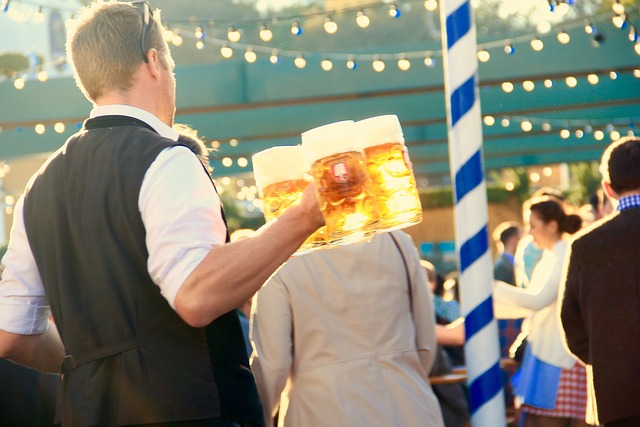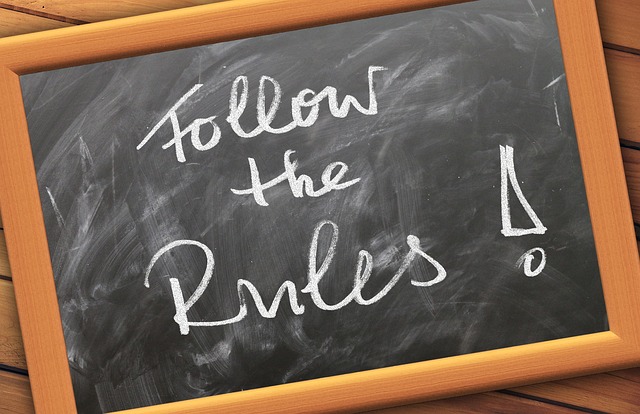Follow the rules…or, don’t…
Basically, a person, place, or thing that is expressed in the plural form with an “s” is a countable noun. So, even if you don’t know what a “blognarg” is, if someone asks for all your blognargs…you can safely believe whatever they are, they’re countable. It refers to items that can be counted.

If, on the other hand, the items are impossible to count, they cannot be expressed in plural form. Things like liquids (milk), or abstract ideas (courage) are uncountable and always considered to be singular.
I’m not here to discuss the ins and outs of “much”, “many”, “a few”, “a lot”, or “some”. Additionally, there is a point to be made about nouns that are both countable and not countable, depending on the context of the sentence (e.g. light, room, time).

But using “a”/“an” with an uncountable noun has become more common, and while it probably means old-school English teachers are slowly being driven insane, it’s another reminder that focusing too much on the rules of English isn’t always a good idea.
Don’t learners want to sound cool; like native speakers? Well, the next time you’re in a coffee shop, feel free to order “a coffee”. In a bar? Ask for “a beer”. Going to the convenience store? Could you get me “a cola”? All of these are liquids and therefore uncountable. None of these should have “a” in front of them. However, the rules have changed and you don’t have to use “cup”, “glass”, or “can” if you don’t want to. The next time you’re watching a movie or TV show in English, see if they follow the rules.

The point is, again: English has a lot of rules and many of them are forgotten, avoided, or are increasingly ignored. Take chances, maybe you’ll start a new twist on an old rule. Just don’t let fear of breaking a rule or being “wrong” be the reason you don’t say anything at all. Communication is the key and I bet you’ll get that coffee…mission accomplished.
<日本語訳>
可算名詞と不可算名詞
ルールに沿う…か、沿わない…か。
基本的に、「s」をつけて複数形で表現される人、場所、または物は可算名詞である。
ですから、たとえあなたが 「blognarg 」を知らなくても、誰かがあなたのblognargsをすべて尋ねてきたら…それが何であれ、数えられるものだと信じて間違いないでしょう。
つまりそれは、数えることができるものを指します。
一方、数えることが不可能なアイテムは、複数形で表すことができません。液体(牛乳)や抽象的な考え(勇気)のようなものは数えられないませんので、常に単数であるとみなされています。
私はここで、「much」「many」「a few」「a lot」「some」の一部始終を議論するつもりはありません。さらに、文脈によって数えられる名詞になったりと数えられない名詞になったりするものがあることについても指摘しておかなければなりません(例:光、部屋、時間)。
しかし、数えられない名詞に「a」/「an」を使うことが一般的になってきて、昔ながらの英語教師方はお困りになってゆくでしょうが、英語のルールにこだわりすぎることは必ずしも良いことではないことをここでも改めて認識させられます。
学習者は、ネイティブスピーカーのようにかっこよく発音したいのではないでしょうか?
今度、コーヒーショップに行ったら、「a coffee」と注文してください。
バーでは、「a beer」で。
コンビニに行きますか? では「a cola」をお願いします。
これらはすべて液体であるため、不可算です。
どれも前に「a」がついてはいけない。
しかし、ルールは変わって、「カップ」「グラス」「缶」を使いたくなければ使わなくてもいいのです。今度、英語で映画やテレビ番組を見るときは、ルールに沿っているかどうか確認してみてください。
ポイントは、繰り返しになりますが、英語にはたくさんのルールがあり、その多くは忘れられたり、避けられたり、ますます無視されるようになっています。あなたも、古いルールに新しいひねりを加えることができるかもしれません。ただ、ルールを破ることや「間違っている」ことを恐れるあまり、何も言わないということがないようにしましょう。コミュニケーションは重要で、きっとコーヒーが飲めるはずです…目標達成。



コメント